|
|
|
Call for contributionsExploring the Archived Web During a Highly Transformative Age 5-6 June 2023 MarseilleThe recent transnational political and health crises are a stark reminder of the need to pay particular attention to the recurrent information that is diffused on the web and social media platforms. These digital documents, both sublime and sinister, have become a routine element in human activity, ranging from ironic memes about lockdown measures to tragic videos documenting the violent actions committed against civilians by armed forces. The nature of web archiving systems aims at sustaining these born-digital sources that are essential for the study of recent phenomena. Subsequently, these constitute precious materials that illustrate the history of the current context since the 1990s while contributing to the construction of a digital heritage, which is both a memory for future societies and an indispensable source of contemporary facts for future researchers. However, the short time span during which transnational events (pandemics, political crises, etc.) have taken place should not mask the profound transformations that have marked societies since the democratisation of the Web in the 1990s, whether it be the climate challenge, the assertion of individual fundamental rights, the effects of economic liberalism or the shifts in religious practices. These transformations have been accompanied by far-reaching socio-technical developments and an expansion in digital cultures, whose global history is yet to be written. The first web archiving initiatives that originated in the 1990s, while providing a valuable source base, also created a large international following, with organisations and individuals such as GLAM (Galleries, Libraries, Archives, Museums), scholars, civil society… whose aim was to collect, safeguard and render the past Web accessible to all. This archived Web constitutes a singular material for the study of recent phenomena, while offering the possibility to preserve the corpora and find websites that are currently inaccessible, and retrieve old websites that are currently unavailable online. However, using Web archives as research material necessitates epistemological and methodological reflection, and has subsequently emerged as a field of study in itself. In recent years, using the Web to study social, cultural and political phenomena has developed considerably, and has thus contributed to advances in the history of the Web and research in the social sciences and humanities. Moreover, the Web and digital cultures have themselves become a field of study, sometimes by trial and error, through the exploration of methodologies, whether they be grassroots approaches or projects rooted in the digital humanities. Since 2012, RESAW (resaw.eu), an organisation created to develop a pan-European research infrastructure, has contributed significantly to this dynamic that focuses on the study of Web archives and the past Web. This highlights the extent to which a better knowledge of the Web’s history may help us to more effectively face the challenges of a world in full transformation. RESAW has also created the opportunity to develop an epistemological and methodological reflection on the making of Web archives, thus establishing itself as a major player in Web archives studies, an interdisciplinary research field undergoing radical restructuring. Eight years after the first RESAW conference, which provided for ground-breaking debates on technical, scientific and archival aspects, the conference in Marseille, organised by Aix-Marseille University, proposes to appraise Web archives studies in relation to the research carried out on the Internet, social media, the Web archives and reborn digital heritage. It will examine the development of Web archiving while highlighting the way in which technical, cultural, geopolitical, societal and environmental transformations impact the conception, study and dissemination of this reborn digital heritage. There are many global challenges and the stakes of Web archiving affect not only researchers and GLAMs, but also the whole of civil society, as the many informal archiving initiatives led by amateurs in countries that do not have a collection system have illustrated. The conference will subsequently focus on the methods and practices implemented by those who have explored and continue to explore the archived Web while opening up perspectives for the years to come. Located on the Mediterranean shores, the conference in Marseille will be an opportunity to stimulate discussions based on the approaches used in different cultural areas on different levels in order to reflect on Web archiving in the Mediterranean and its surrounding areas. Theme scope and conference topicsWhether it concerns studies based on web archives or reflections on web archiving, (non-exclusive) areas of interest can be submitted:
SubmissionsThe deadline for submissions is 21 November 2022. Submissions are welcome from all fields and disciplines, and we would particularly encourage postgraduate students and early career researchers to participate. Disciplines and areas of expertise
Possible formatsIndividual papers of 15 minutes (500-word abstract). Timetable
|


